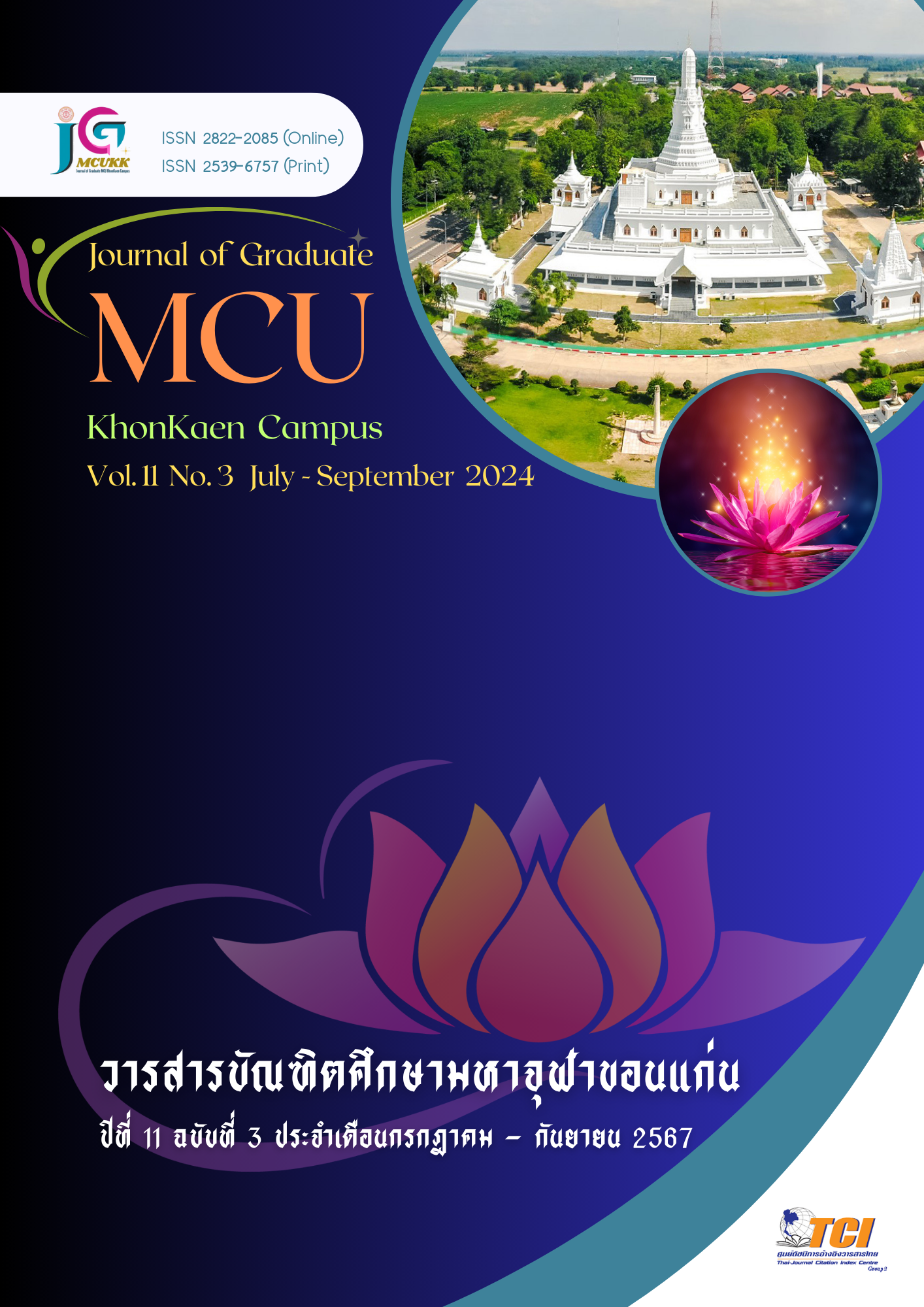The Development of English Vocabulary Memorization Ability Using Mnemonic Techniques for First Year Students in the Faculty of Education Program in Teaching English
Main Article Content
Abstract
The purposes of this research were 1) to develop the ability to remember English vocabulary by using the Mnemonic technique of first-year students of the Faculty of Education, Program in Teaching English; students’ average achievement in remembering English vocabulary of not less than 80 percent, and 2) to study the student's satisfaction towards the development of the ability to remember English vocabulary using the mnemonic technique. The participants consisted of 42 first-year students of the Faculty of Education, Program in Teaching English at Mahamakut Buddhist University Isan Campus. The participants were selected by means of Purposive Sampling Method. The research instruments included 1)lesson plans of ED1046 English listening-speaking subject, 2)behavior observation form, 3)assessment of word memorization ability form, and
4)satisfaction questionnaire. The data were analyzed quantitatively utilizing the mean, the standard deviation and the percentage.
The results of the research on the development of English vocabulary memorization ability using Mnemonic techniques of the first-year students found that the students had the ability to remember English words with an average score of (μ=51.23), representing 85.39 percent of the full score, which is higher than the criteria set. Regarding the satisfaction of the students towards development of English vocabulary memorization ability using Mnemonic techniques, as a whole, it was revealed that the students were satisfied with the development of English vocabulary memorization
ability using Mnemonic techniques at the highest level (μ = 4.51, = 0.59)
Article Details

This work is licensed under a Creative Commons Attribution-NonCommercial-NoDerivatives 4.0 International License.
References
พิรมลักษณ์ ตันปาน. (2561). การพัฒนาความสามารถในการเรียนรู้ภาษาอังกฤษของนักเรียนชั้นประถมศึกษาปีที่ 3 โดยใช้การจัดการเรียนรู้ตามแนวภาษาเพื่อการสื่อสาร ประกอบเทคนิคนีมโมนิคส์. (ปริญญาคุรุศาสตร์มหาบัณฑิต). มหาสารคาม: มหาวิทยาลัยราชภัฎมหาสารคาม.
อภิเชษฐ์ ขาวเผือก. (2558). การพัฒนาเกมการศึกษาบนแท็บเล็ตโดยใช้เทคนิคช่วยจำเพื่อส่งเสริมความคงทนในการจำคำศัพท์ภาษาอังกฤษ สำหรับนักเรียนชั้นประถมศึกษาปีที่ 2 โรงเรียนวัดสะแกงาม. วารสาร Veridian E-Journal, Silpakorn University สาขามนุษยศาสตร์ สังคมศาสตร์และศิลปะ, 9(2), 1416-1431.
Hunt. (1968). Mnemonology: Mnemonics for the 21st Century (p.84). New York: London: Psycology press.
Kemmis, S & McTaggart, R. (1988). The Action Research Planer (3rd ed.). Victoria: DeakinUniversity.
Linse, C. T. & Nunan, D. (Ed). (2005). Practical english language teaching: Young learners. New York: McGrawHill ESL/ELT.
Mahmut K. (2018). Mnemonic Technique - An Effective Vocabulary Teaching Method to Plurilingual Students. Modern Journal of Language Teaching Methods (MJLTM), 388-400.
Zahra N.B. (2018). The Impact of Musical Mnemonic on Vocabulary Recalling of Iranian Young Learners. International Journal of Instruction, 977-994.

